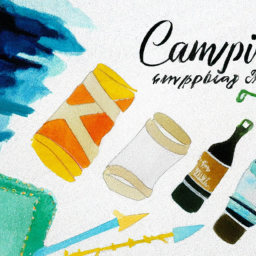
What Is the Best Hydrostatic Head for a Tent?
Share
What Is the Best Hydrostatic Head for a Tent? (2025 Guide)
Quick answer: For family camping, a fly rating of 3000–5000 mm and a floor rating of 5000–8000 mm is ideal. Backpackers in light weather can manage with 2000–3000 mm, while storm or alpine campers should look for 5000–10,000 mm+ with full seam sealing.
When shopping for a tent, you’ll see numbers like 2000 mm or 5000 mm under “Hydrostatic Head.” But what do these ratings really mean? In this guide, we break down how waterproof ratings work, what’s best for your type of camping, and how to balance durability, weight, and cost.
Recommended Hydrostatic Head Ratings by Use
| Camping Style | Fly (mm) | Floor (mm) | Notes |
|---|---|---|---|
| Backpacking (fair weather) | 2000–3000 | 3000–5000 | Light, compact, suited for summer hikes. |
| Family camping (mixed weather) | 3000–5000 | 5000–8000 | Best balance of protection & comfort. |
| Stormy/windy conditions | 5000–8000 | 8000–10,000 | Requires strong poles or air-beam frames. |
| Alpine/extreme | 7000–10,000+ | 10,000+ | For heavy rain, snow, and exposure. |
Other Factors That Influence Waterproofness
- Seams: Must be taped or sealed, otherwise fabric rating doesn’t matter.
- Shape: Steep walls shed water better than flat panels.
- Ventilation: Reduces condensation that feels like leaks.
- Materials: PU coatings are common; silicone coatings last longer.
Editor’s Pick for All-Weather Family Comfort
Looking for a reliable, quick-pitch option with the right waterproof rating? Try the 4–6 Person Inflatable Camping Tent from Joomcy. With a 5000 mm+ fly and bathtub floor, it’s built for confident rain protection.
Check Price & AvailabilityFAQs on Hydrostatic Head Ratings
Is 2000 mm enough for a tent?
Yes, if you camp only in fair summer weather. For mixed conditions, aim for 3000 mm or higher.
What is the ideal rating for family tents?
Most families choose a 3000–5000 mm fly and a 5000–8000 mm floor for reliable waterproofing and comfort.
Do inflatable tents need higher ratings?
Not necessarily — what matters is a full fly, bathtub floor, and taped seams. Air-beam frames actually speed up setup, so the inner tent stays dry during pitching.
Does higher hydrostatic head always mean better?
Higher ratings resist more pressure but add weight and cost. The best choice depends on climate, trip length, and comfort level.